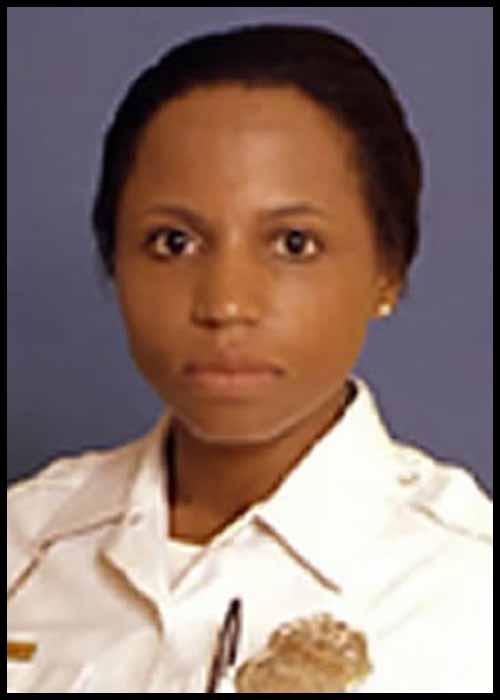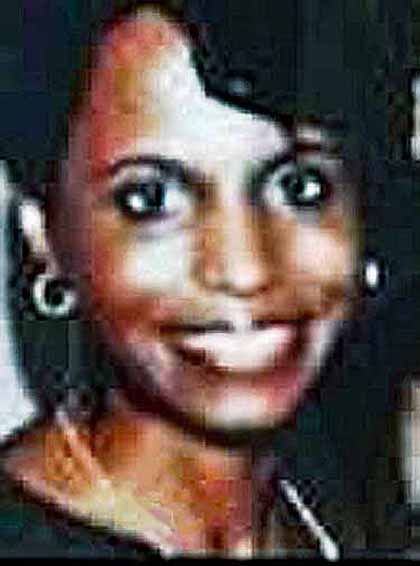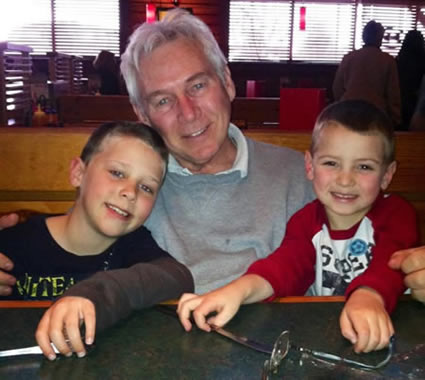Police Officer Jane Thompson Bowman

Remembering Police Officer
Jane Thompson Bowman
A Typical Night
On January 31, 1981, it was a typical night for the Columbus Police narcotics squad. Columbus Police Officer Mike Manley and Franklin County Sheriff’s Deputy James W. Evans had secured a search warrant to enter a house located at 1854 Eastfield Avenue. Manley and Evans had previously been undercover and bought LSD at the house. That night, detective Manley and Deputy Evans would be joined by Columbus Police Officers Jane Thompson (Bowman) and Edward Ryan, along with Columbus Police Sergeant Hubert Stanley.
At approximately 10 p.m., the officers knocked on the side door of the house, identified themselves as police officers, and informed the occupants of the home they had a search warrant. The officers were let in, at which point Detective Manley informed the man who opened the door to put the Doberman Pinscher into the bathroom, which was near a pair of bedrooms. The officers then proceeded down the small, dark hallway.

“Here Come The Cops”
As the officers approached the bedroom, someone yelled, “Here come the cops.” The bedroom then went dark when one of the room’s occupants kicked out the plug to a lamp. The next thing the officers would see is multiple flashes of light coming from a gun in the bedroom. Officer Ryan, who was in the bedroom doorway, was struck immediately in the chest. Deputy Evans would take a bullet to his lower back. Officer Thompson (Bowman) was hit twice in the stomach. Sergeant Stanley took a bullet to the chest, which went into his bulletproof vest. Officer Manley and Sergeant Stanley were able to return fire. One of those bullets would hit Tony Sayre, one of the men in the room.
“10-3, shots fired”
Although Officer Thompson (Bowman) was seriously wounded in the shooting, she was somehow able to reach her walkie-talkie while shots were still being fired. In a weakened voice, she stated, “10-3 [officer in trouble], shots fired, I’ve been hit. There are other officers down.” She also continued to broadcast vital information to fellow officers driving to the house. Seven minutes later, 14 cruisers, six emergency squads and a police helicopter were on the scene. The four wounded officers were rushed to the hospital along with Tony Sayre. It was later learned that it was Sayre who fired every bullet from his gun at officers before throwing the gun on the floor.
The Aftermath
The night of January 31, 1981, forever changed the lives of all the officers who were involved in the shooting. Officer Ed Ryan would spend weeks in critical condition. The bullet that went into his chest hit a lung, went down through his diaphragm, through his stomach, spleen, pancreas, large intestine, small intestine and colon. While lying in the emergency room, he heard officers say that homicide should be called because he wasn’t going to make it. Somehow, he survived. He had to have his spleen and part of his pancreas removed after the shooting. A bullet is still lodged in his spine.
Deputy Evans took a bullet in the back and would need to have his spleen and one kidney removed to survive. The bullet lodged right next to his aorta. One centimeter more and he would be dead. Twenty-eight years later, he still remembers crawling to the kitchen and lying on the floor there thinking, “They are going to kill us all.” Deputy Evans eventually returned to active duty.
Sergeant Stanley also returned to duty suffering a slight chest would. His bulletproof vest saved his life.
Detective Manley, who was told by the assistant prosecutor he was likely only a few inches away from being critically wounded, is now a commander with the Columbus Police Department.
Officer Jane Thompson (Bowman) would pay the ultimate price.
Eight Years of Constant Pain And Suffering
Columbus Police Officer Jane Thompson (Bowman) was the first Ohio Policewoman to be shot in the line of duty. However, her true legacy is her bravery and courage. Officer Thompson (Bowman), who was the mother of a four-year-old daughter when she was shot, spent eight years battling chronic and horrible pain. She did not want her daughter to grow up without a mother. The bullets fired by Tony Sayre would damage multiple organs and prevent Officer Thompson (Bowman) from having any more children. “I resent that,” she said. “That was something I had. It was a right that was taken away from me. It wasn’t my decision and I resent it”
Officer Thompson (Bowman) could have retired after the shooting, however her desire to help others would not be deterred. Concerned about abused children, Officer Thompson (Bowman) would go back to work for the Columbus Police Juvenile Squad. “I’m really concerned about the problem of abused children,” she said. “If I can help one child from being abused or save one child’s life, it will be worth it.” Sadly, after spending one year on the Juvenile Squad, Officer Thompson (Bowman) would have to retire on disability due to complications from the shooting. As a result of her injuries, Officer Thompson (Bowman) would be hospitalized 60 times and would have over 30 surgeries in eight short years.

After eight years of pain and suffering, Officer Thompson (Bowman) would succumb to her wounds. On March 9, 1989, Officer Thompson (Bowman) lost her fight to survive the damage done by the bullets fired by Tony Sayre. Officer Bowman died in the arms of her husband en route to the hospital. According to her mother, “She just couldn’t take it anymore.”
Officer Thompson Bowman left behind her only child, a daughter, age 12.
Sayre Draws 28-100 years
There is no doubt Tony Sayre tried to kill five police officers. Fortunately for Sayre, at the time of his trial, none of the officers had died. In 1981, with police consent, Sayre was offered a plea deal allowing him the opportunity to plead guilty to two counts of attempted murder, giving him a 14-50 year sentence in the penitentiary with parole eligibility after ten years. Unbelievably, Sayre rejected the plea because he wanted to go to a reformatory where he could become eligible for parole more quickly. One has to wonder if he was concerned that one or more of the officers would die and he wanted to get out before he was charged with murder. Assistant Prosecutor Thomas Beal denied the request to put Sayre in a reformatory rather than a penitentiary. Sayre eventually pled guilty to all four counts of attempted murder. Judge Frederick T. Williams handed down the maximum sentence of 28-100 years. The judge did give Sayre his wish to be sent to the reformatory, however that was not because he wanted Sayre paroled. “Williams was what we called ‘The Time Machine,’” Beal says today. “Williams had to believe that Sayre would never be paroled after trying to kill five police officers.” Beal says he believes Sayre should serve the rest of his life in prison for his crimes.